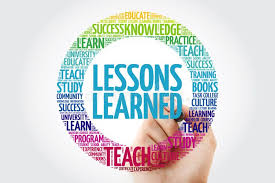In today’s fast-paced world, learning has become an essential skill. While acquiring knowledge and developing new abilities have always been important, there is a growing emphasis on becoming a lifelong learner. This leads us to an important question: how can we learn to learn more effectively? The answer to this puzzle lies in meta-learning, the art of understanding and improving our learning processes. In this article, we will shed light on key lessons you can take away from engaging in meta-learning.
1. Recognize Your Learning Style
Everyone has unique preferences when it comes to absorbing information. Some people are visual learners who process information best through images and diagrams, while others are more auditory learners who learn better through listening. Knowing your learning style can help you adopt methods tailored to your strengths, leading to more effective and enjoyable learning experiences.
2. Set Clear Goals
Before embarking on any learning journey, establish what you want to achieve. Clear goals enable you to measure progress and determine when you’ve successfully acquired a new skill or knowledge area. Break larger goals into smaller milestones to stay motivated and make steady progress.
3. Be Curious and Embrace Challenges
Seek out opportunities to stretch your thinking and challenge your boundaries. Tackling difficult tasks with a curious mindset will prevent you from being intimidated by complexity or the fear of failure while promoting growth and deep understanding.
4. Foster a Growth Mindset
A growth mindset involves believing in your capacity for change and improvement. It helps you see setbacks not as failures but as valuable lessons for growth, helping with motivation and resilience. Viewing intelligence as malleable rather than fixed will open doors for continued development throughout life.
5. Practice Deliberately
Go beyond passive learning (e.g., merely reading or listening) by actively engaging with the material. Ask questions, summarize what you’ve learned, teach others, or put your newfound knowledge into practice. This will solidify your learning and enhance your ability to recall the information later.
6. Reflect on Your Learning Process
Take time to periodically assess your learning strategies and their effectiveness. Self-reflection makes you aware of what works well for you and what doesn’t, allowing you to fine-tune your approach as needed.
7. Seek Feedback
Constructive feedback from peers or mentors can provide valuable insights into areas where you excel and spaces for improvement. Regularly seeking feedback helps you adapt your learning strategies and become more self-aware.
8. Prioritize Time Management
With countless resources and opportunities available, it’s essential to manage your time wisely. Prioritize tasks, set a schedule, and create a balance between learning, leisure, and other responsibilities to optimize your productivity and personal well-being.
By embracing these lessons from the world of meta-learning, you can unlock your full potential as a lifelong learner. Cultivating the skill of deliberately improving how you acquire new knowledge will not only enhance your personal development but also empower you in an ever-changing world where adaptability is critical for success.




